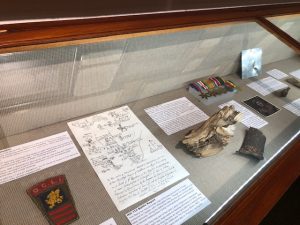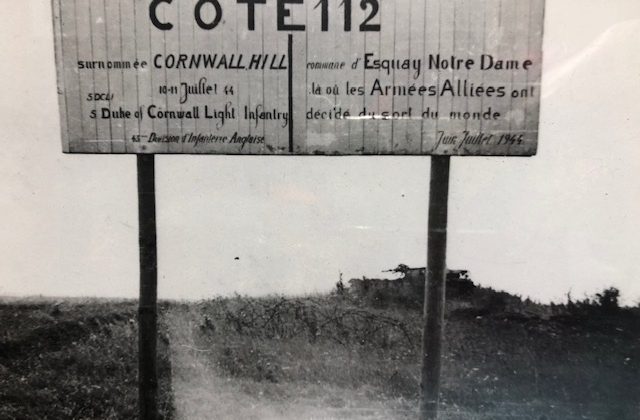He who commands Hill 112, commands Normandy!
In June 1944, Britain and its allied forces had landed thousands of soldiers on the 5 beaches of Normandy in Northern France as part of Operation Overlord and the D-Day landings. It was a final bid to liberate France from the Nazis, but on July 10th the German army fought back to fight one of the fiercest battles the war had seen at a site called ‘Hill 112’.
The British soldiers in the battle were the 5th Battalion DCLI. Hill 112 was an important area of high ground near Caen in Normandy which the German army wanted to keep control of because the hill gave them a strong advantage.
On the evening of 10th July 1944, around 380 soldiers from the DCLI launched an attack up Hill 112, where the German army’s 10th Panzer (tank) division fought back with stronger armour and more powerful guns.
The German army launched 12 counter-attacks but undeterred and resilient, the DCLI fought off each one. Fighting continued all night, with German tanks rolling over the top of the trenches in which the Cornish soldiers were hiding.
Although they were outnumbered and out-armoured, after 19 hours of fighting and big losses on both sides, the Cornish soldiers had smashed one of the German army’s best tank divisions.
Fighting over control of Hill 112 continued for weeks until the German army finally retreated. The soldiers of the DCLI formed part of a larger group called the 43rd Wessex Division. In total, 7,000 men from this division were killed during the battle for Hill 112.
Because so many Cornish men died during the battle, the hill became known as ‘Cornwall Hill’ and the wood at the top of the hill where the DCLI gathered on July 10th 1944 became known as ‘Cornwall Wood’. We have a splinter of wood and part of a Nebelwerfer artillery shell in our museum collection. They were discovered at the site in the 1960’s.

Lieutenant Colonel Dick James, a Commanding Officer of the DCLI soldiers on Hill 112, was killed in the battle. He had climbed an apple tree to get a better view of the German army positions but was shot in the neck and killed instantly. He was only 26.
Sir David Willcocks was born in Newquay. He was made a Temporary Captain in the DCLI and fought at the Battle of Hill 112. For his bravery in the battle, he was awarded the Military Cross.

